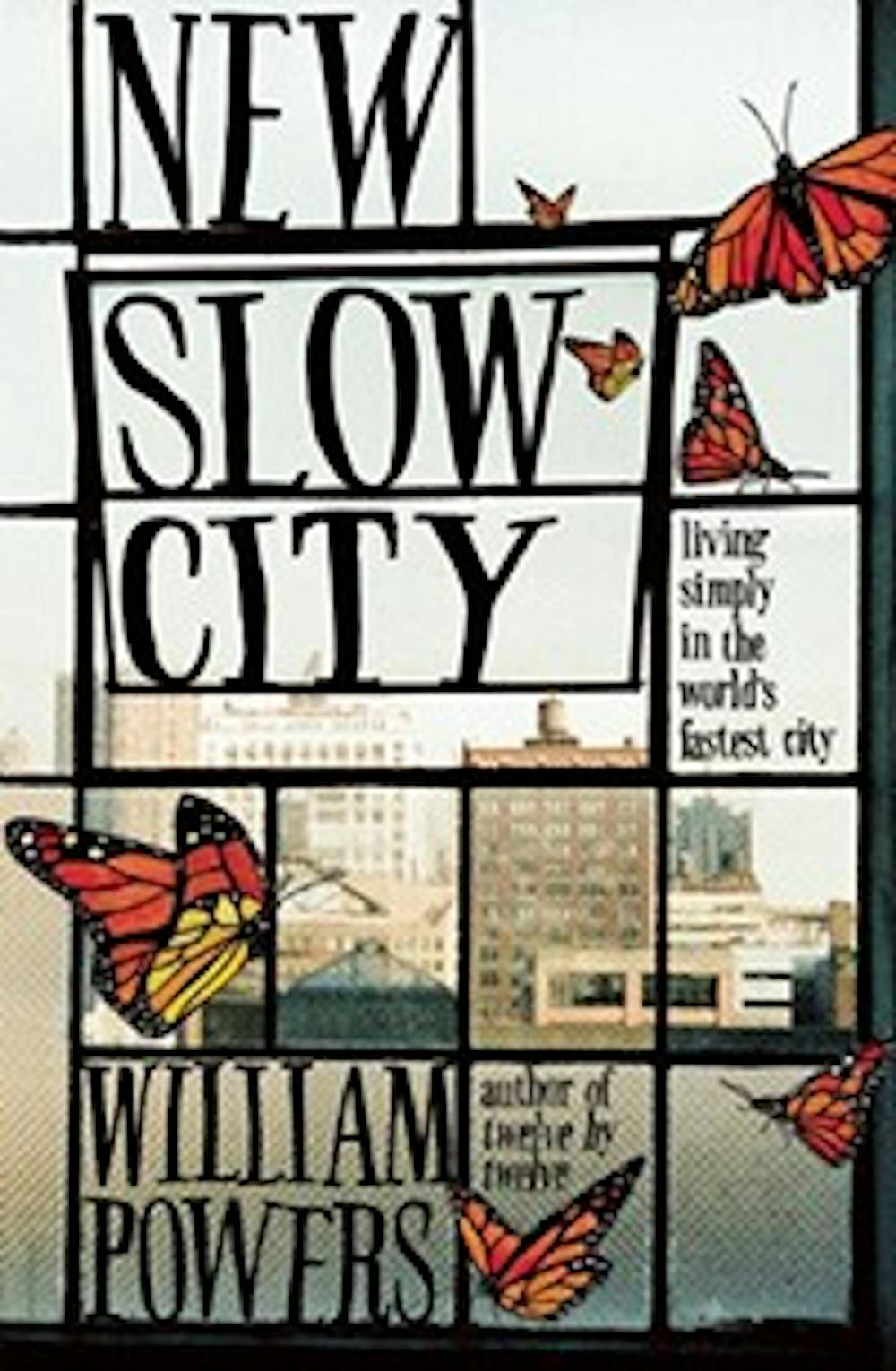By TESSA WISEMAN
Author William Powers discussed his new book New Slow City: Living Simply in the World’s Fastest City at Barnes & Noble this past Sunday. Powers’ book is a nonfiction account of his attempt to live minimalistically in New York City.
“There’s an irresistible revolution underway,” Powers said to a crowd of about 20 people including Hopkins students, professors and local residents, on Sunday. “One that is so much more attractive than the corporate monoculture we live in.”
Powers’ book is a look at this revolution, one that thrives off of putting the brakes on fast-paced lives, connecting with the natural world and steering clear of excess.
Powers told of his own journey toward a minimalist lifestyle, which began in the ‘90s while he was working in Liberia delivering food to war-torn areas. He found “amazing joy” emanating from the Liberian people who possessed little material wealth.
While subsequently working in Bolivia and other developing countries, Powers said he began to feel at odds with the excessive and fast-paced culture in America.
“[I] didn’t learn what it was like to be poor but to be rich,” he said.
Back on American soil, Powers quietly packed up his belongings and moved to a 12-foot-by-12 foot cabin “off the grid” in North Carolina. His small abode was situated within a community of other cabins similar in size, each with two acres of land. It was a multicultural bunch, he said, all devoted to embracing a lifestyle of less. This story is chronicled in his book Twelve By Twelve: A One-Room Cabin Off the Grid and Beyond the American Dream, the precursor to New Slow City.
New Slow City: Living Simply in the World’s Fastest City is the product of Powers’ second immersion into minimalism. Powers and his wife moved out of their 2,000 sq. ft. townhouse in Queens, N.Y., gave up 80 percent of their possessions and moved into a 350 sq. ft. “micro apartment” in Greenwich Village.
Powers described how he and his wife challenged themselves to work fewer hours and instill slowness and simplicity in their everyday lives. This involved sitting atop rooftops, seeking out urban sanctuaries — like Pier 45 in Hudson River Park — and taking weekend-long “staycations” during which all technology was put aside to maintain the aimed at lifestyle.
“Technology should be a tool, but we shouldn’t be its fool,” Powers said in response to an audience member’s scepticism about the “slow movement” in an era of burgeoning technological development intended to make life faster.
To be less tied down by technology, Powers encourages his readers to set limits.
“People, over time, will come to respect them. We don’t have to be part of this bigger narrative,” he said.
The bigger narrative, according to Powers, is the story that connects the pursuit of more wealth and progress with instant gratification.
After a year of living minimalistically in New York, Powers said he decided to continue with that lifestyle in yet another different location. He moved to a village of 4,000 people in Bolivia, where he still resides with his family.
At the reading, Powers discussed the “transition town,” part of a movement to decrease an area’s carbon footprint and increase resilience to the effects of climate change. As a community, they grow organic fruits and vegetables, creating what Powers calls a “web of interconnectedness.” Powers said that he prefers dependency on one another more than an individualistic lifestyle.
Powers also read an excerpt from his book. Instead of preparing a specific passage, he started flipping through pages and told someone to randomly say ‘stop.’ The page he happened to be on when the command came was the one he read.
The passage he landed on took place on the roof of his “micro apartment,” known by himself and his wife as “Tar Beach.” While sitting there with a friend, he received an email from another friend of his stating that the friend’s 25-year-old son had committed suicide. The friend’s son had served in Afghanistan and had been living at home, sleeping with a gun under his pillow each night; the same gun he used to take his own life.
Powers expressed his sorrow to the friend sitting with him on the roof, leading to a conversation about each person having a part within them that they don’t fully trust.
“Roofs threaten,” his friend said. “People are afraid they might jump.”
During the question and answer session, Powers had a few tips for applying his principles to daily lives. One piece of advice he shared is to look at your “joy-to-stuff” ratio and assess the correlation. Another tip he shared with the audience is to focus on personal interests.
“Find your passions and find income streams out of that,” Powers said.
Powers’ received degrees in international relations from Brown University and Georgetown University. He has been published in the Washington Post, the New York Times, the International Herald Tribune and the Atlantic.
Powers has written four books and is an adjunct faculty member at New York University. Some of his books include Twelve by Twelve, Blue Clay People and Whispering in the Giant’s Ear.
Powers received a prize in 2003 from the John F. Kennedy School of Government at Harvard University for his work in the Bolivian Amazon.





